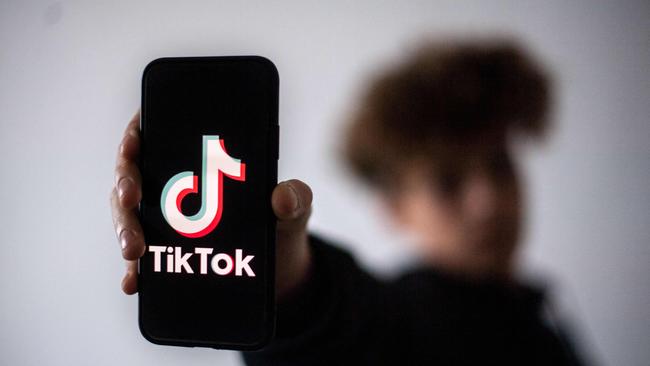
That app is TikTok, the most downloaded app of all time – an app millions of Australian children spend hours on everyday. TikTok is a video entertainment app that exploded in popularity during the early days of the pandemic and is known for hosting fun videos of dance troupes.
TikTok does not divulge how many Australian users it has. Some estimates put the figure at about 7.4 million, but that’s just those users who are over the age of 18. Other estimates have indicated that on a global scale only 12.2 per cent of TikTok’s users are over 18, meaning the vast majority of users of the app are kids.
The statistics that illustrate TikTok’s popularity are eye-watering. The average user spends 52 minutes a day on the app, opening it eight times. While it has been characterised as being less toxic for young people than some of the other dominant social media apps, it has a suite of what cybersecurity experts call “dangerous permissions”, especially if downloaded on to Android phones.
These permissions allow the app to hijack a phone’s camera and microphone, collecting photos and voice recordings of users at any time, while allowing the company to share this biometric data with third parties.
Some of the permissions that TikTok has are highly unusual. The New York Times reported last year that “content moderators have access not just to videos posted publicly but also to content sent to friends or uploaded to the system but not shared”. It is unclear why moderators need access to such material and what purpose such access serves.
Researchers from the University of Melbourne have informed Australians that TikTok captures the “faceprints and voiceprints” of its users. Niels Wouters from the Interaction Design Lab in the Melbourne School of Engineering and Jeannie Marie Paterson of the Centre for Artificial Intelligence and Digital Ethics have stated that these faceprints and voiceprints “are comparable to fingerprints as they can help others identify, surveil and profile people of interest”.
TikTok is owned by a parent company called ByteDance, of which the CCP reportedly has a 1 per cent stake.
The access that the CCP has (or may have) to data harvested by TikTok has prompted senator James Paterson of the Liberal Party to write to the company asking if Australian user data was accessible in mainland China. TikTok confirmed that such data was accessible, which in effect, makes it accessible to the Chinese government due to Chinese national security law.
Concern about the access that TikTok has to user data is a bipartisan issue, not only in Australia but also in a growing number of nations including the US and Britain. Home Affairs and Cyber Security Minister Clare O’Neil recently was quoted in the media saying: “Australians need to be mindful of the fact that they are sharing a lot of detailed information about themselves with apps that aren’t properly protecting that information. I hope it concerns Australians because it certainly concerns me.”
Yet although the concern is bipartisan, it is not clear what legislative changes we can expect and for how long we must wait. Some cybersecurity experts have called for TikTok to be banned altogether because of its risk to national security. Others who are concerned about the impact that social media is having on children more broadly are asking legislators to raise the age of consent to use social media to 18.
Australian parents and concerned citizens should familiarise themselves with these issues and ask our federal members to pass legislation protecting our children. There is enough evidence that shows social media apps are harmful that regulation of their use could be justified even without a national security threat.
But given that national security risks are present, we should demand action be taken in a timely manner. The data being collected on our children is likely to be stored permanently on servers far away from Australia’s borders, and used in ways we cannot predict or have any control over.
We know China has used artificial intelligence to track and control its own populations, including the Uighurs, of whom one million have been interned in detention camps. It is not unreasonable to ask ourselves why we are allowing similar technologies to track our own children.
Claire Lehmann is the founding editor of Quillette.



While China fires missiles in military drills near Taiwan and the Chinese ambassador attacks Foreign Minister Penny Wong over anodyne diplomatic statements, millions of Australian children are having their data harvested by a mobile phone app whose parent company has known ties to the Chinese Communist Party.